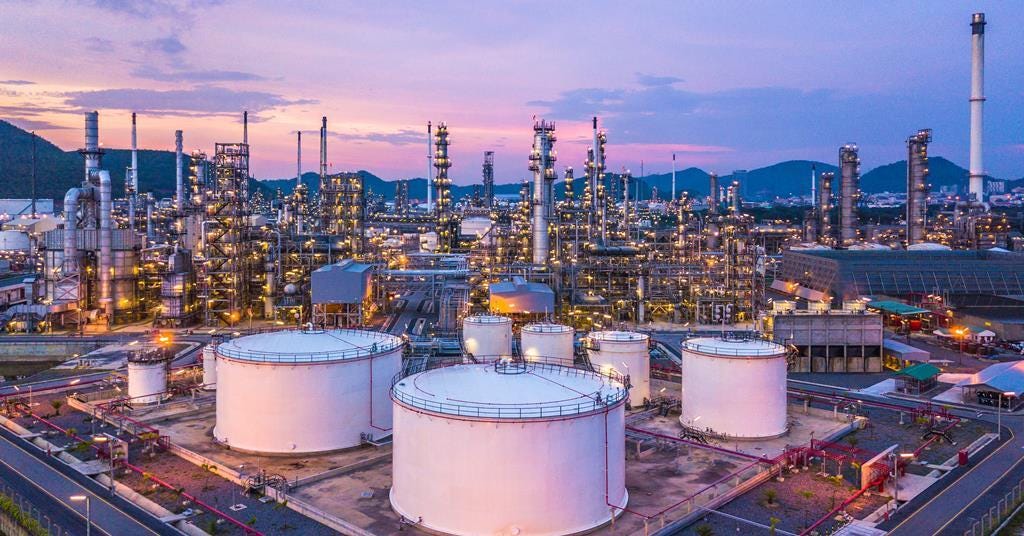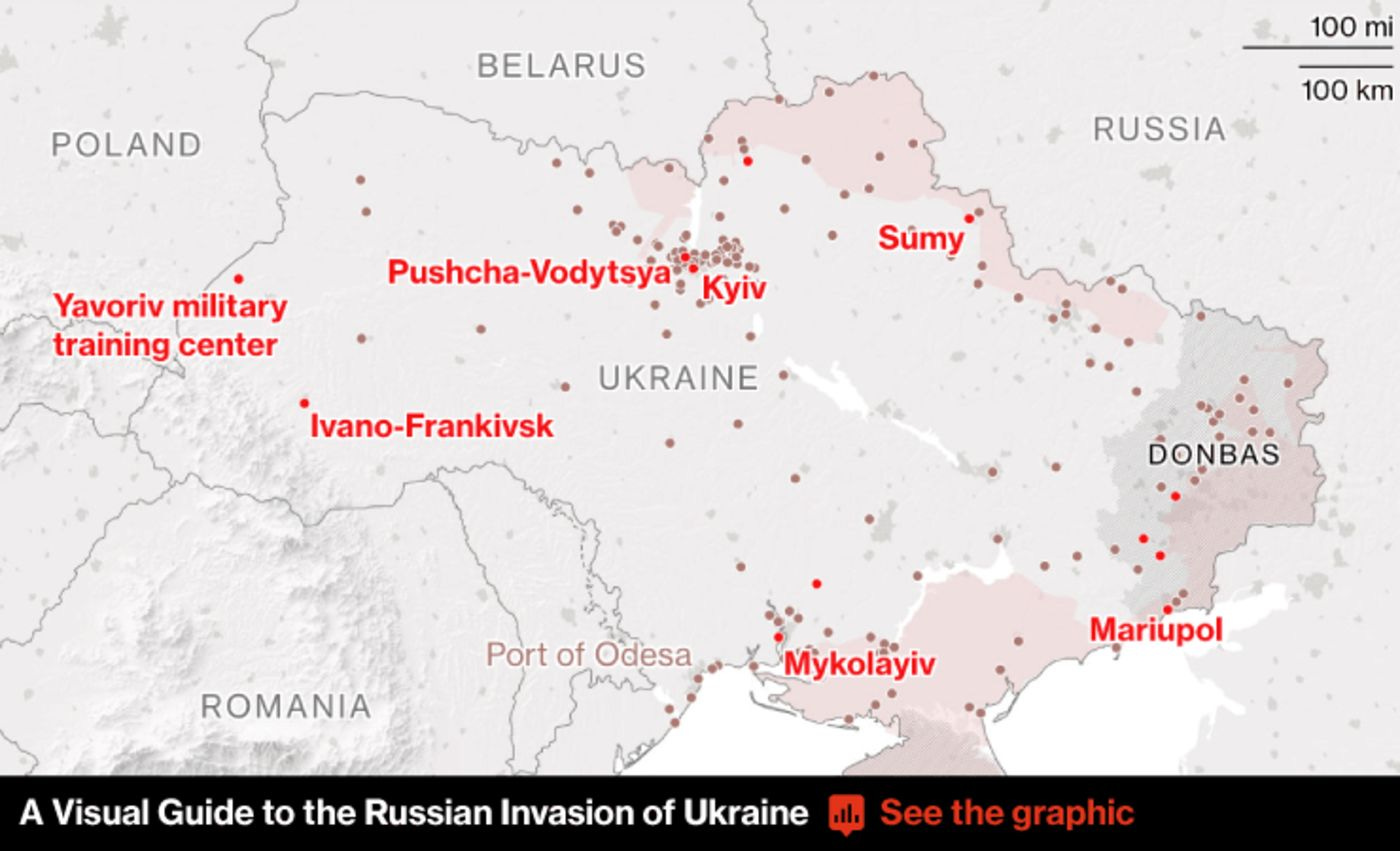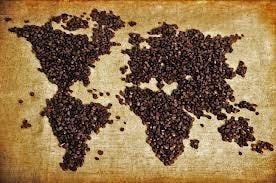Emerging Markets Daily - March 20
Aramco To Hike Production, Russia Uses Hypersonic Missiles, Saudi Oil to China in Yuan?, ADB Secures $33B for Africa Projects, Suzuki EV Project in India, Plus: India's Specialty Coffee Boom
The Top 5 Stories Shaping Emerging Markets from Global Media - March 20
Saudi Aramco To Boost Oil Production to Meet Rising Global Demand. CEO Urges Other Oil Producers To Do The Same.
Financial Times
“Saudi Aramco has said it will boost spending on oil production to meet rising energy demand as chief executive Amin Nasser criticised ‘totally unrealistic’ plans to swiftly transition the world away from fossil fuels.”
“The world’s biggest oil exporter said years of under-investment in the oil industry was threatening global energy security even as the company cashed in on rising prices, reporting its highest annual earnings since an initial public offering in 2019.”
“Net income more than doubled in 2021 to $110bn, Saudi Aramco said on Sunday, and the oil group maintained its full-year cash dividend — one of the biggest in the world — at $75bn.”
“The state-backed group, which had reported earnings of $49bn a year earlier, said the 124 per cent increase was driven by ‘higher crude oil prices, stronger refining and chemicals margins and the consolidation of Sabic’s full-year results’.”
“…Russia’s invasion of Ukraine threatened to pull millions of barrels of Russian crude from the market, Nasser said. As a result, substantial investment is needed to arrest global supply that is declining by as much as 7 per cent a year, he added.”
“‘We are doing our part but it is not enough. Other players need also to do their part and increase their investment,’ he said. Saudi Aramco is in the process of increasing its maximum production capacity from 12mn to 13mn barrels a day.”
“The company published its full-year earnings the morning after the Saudi-led coalition at war in Yemen said Houthi rebels had targeted several facilities in the kingdom overnight with drones and ballistic missiles, including a Saudi Aramco terminal in the south and one of the company’s liquefied gas plants.”
“The coalition said there was minor damage and no casualties.” The Financial Times reports.
The Saudi Aramco story above is a good reminder of Why Petroleum (Still) Matters. Our Emerging World column on the topic from 9 months ago below
Zelensky Aide Confirms Russian Use of Hypersonic Missiles
Bloomberg
“A top Ukrainian aide said Russia has turned to ‘more destructive artillery,’ hours after Russia said it used hypersonic ‘Kinzhal’ missiles for a second time.”
“Ukraine expects to get its next batch of U.S. weaponry, including Javelins and Stingers, in the coming days. Evacuations continue even as heavy fighting continues, particularly in the besieged southern port city of Mariupol, and Russian forces blocked several trucks carrying humanitarian aid.”
“Zelenskiy has announced the suspension of activities of some Ukrainian opposition parties with alleged connections to Russia, citing martial law. Russian cosmonauts aboard the International Space Station caused a stir when they posed in yellow and blue uniforms; Moscow denied that was a show of support for Ukraine.” Bloomberg reports.
Will Saudi Aramco Accept Yuan for Oil Sales to China? CEO Dismisses It as ‘Speculation’
Arab News
“Aramco CEO Amin Nasser said the news on Saudi Arabia considering sales of its oil in Chinese currency is ‘speculation’ at a time when researchers such as Capital Economics ruled out the move.”
“Asked by media on Sunday on the news, the CEO said that he doesn't comments on rumours and speculation. A recent report from the Wall Street Journal suggested that Saudi Arabia is in talks with China to price and receive payments for some of its oil sales in renminbi rather than US dollars. The talks have been ‘off and on for six years,’ but discussions have intensified in recent months.”
“‘For many countries (including Saudi Arabia and China), the harsh sanctions imposed by the US on Russia have raised questions about the wisdom of transacting in dollars and holding dollar-denominated assets as part of their official reserves,’ Jason Tuvey, senior emerging markets economist, at Capital Economics wrote in a note.”
“Saudi Arabia is one of those few countries, which run a trade surplus with China. Over the past decade, it has averaged around $24 billion. According to Tuvey, if all trade with China were to be conducted in renminbi, Saudi Arabia would quickly accumulate large holdings of the renminbi. Within five years, all else equal, the renminbi could easily make up as much as 20-25 percent of the Kingdom’s official FX reserves.”
“This is a scenario that the economist rejects as unlikely as he believes the Kingdom ‘may be reluctant to hold large amounts of FX reserves in renminbi, not least because of concerns regarding convertibility and the implications for its ability to defend the dollar peg.’”
“However, the Kingdom may decide to accept renminbi for only a portion of oil sales to China, and/or it could recycle renminbi receipts and increase goods and services exports from China, wrote the expert.” Arab News reports.
African Development Bank Secures $32.8 Billion for Projects Across the Continent
Reuters
“The African Development Bank (AfDB) has secured $32.8 billion in investment commitments for projects in Africa, the bank's president said at the closing of a meeting with investors.”
“The largest deal secured at the three-day Africa Investment Forum was $15.6 billion for the Lagos-Abidjan mega highway, connecting West Africa's two major cities in Nigeria and Ivory Coast, said AfDB President Akinwumi Adesina.”
"‘Africa is a very bankable continent. We've gone through hard times because of the COVID-19 situation but here we are on a rebound,’ said Adesina. ‘Africa is back for investments.’”
“The projects, part of the bank's COVID-19 response, touch on sectors including agriculture and agro-processing, education, energy and climate, healthcare, minerals and mining, and information and communications technology.” Reuters reports.
Suzuki Announces EV Project in India
Japan Times
“Japan’s Suzuki Motor Corp. said Sunday that it will invest ¥150 billion to make electric vehicles and batteries in India to support the country’s decarbonization efforts.”
“Suzuki made the announcement on Saturday after Prime Minister Fumio Kishida, who is in India, unveiled a plan for the Japanese public and private sectors to invest ¥5 trillion over the coming five years in the South Asian country.”
“Through its investment, Suzuki will expand its vehicle plant in the Indian state of Gujarat so that it can also make electric vehicles and will establish an electric vehicle battery factory next to the vehicle plant.”
“In Gujarat, the company expects to start making electric vehicles in 2025 and batteries in 2026. Its investment will also be used to build a vehicle recycling plant in India, slated to begin operating in 2025.”
“Suzuki controls more than 40% of India’s passenger car market. In its five-year business plan from fiscal 2021, the company aims to promote vehicle electrification and raise the market share to 50% in India.” Japan Times reports.
Weekend Feature: Specialty Coffee Wave Brewing in India
BBC
“A disappointing shopping trip paved the way for a boom in India's specialty coffee market. Matt Chitharanjan and Namrata Asthana had just moved from the southern Indian city of Chennai to national capital Delhi in 2012, and they were desperate for a good cup of coffee.”
“…But the coffee they found at their local Delhi supermarket had been roasted months ago and seemed stale. They saw an opportunity - earlier that year, long queues had stretched outside India's first Starbucks outlet in Mumbai city.”
“But the couple discovered that some of the country's best coffee was being exported. ‘We started cold-calling coffee estates and setting up appointments. We had to convince them to sell us their export-quality coffee beans,’ Mr Chitharanjan says.”
“And soon, in early 2013, Blue Tokai Coffee Roasters was born - Mr Chitharanjan roasted the beans and Ms Asthana packaged it for sale online.”
“Today, the hip coffee brand is a popular choice for India's urban millennials, with 50 outlets in some of India's priciest locations and thousands of customers across the country. They've roasted more than 1,000 tons of coffee and served close to three million cups so far. Now, they don't need to convince coffee growers to sell them their best stock.”
“Blue Tokai's founders understood early on that well-heeled Indians are willing to pay extra for specialty coffee roasted in smaller batches and customised for different palates. Rohan Kuriyan, a second-generation coffee grower and exporter, credits Blue Tokai with changing the tide for India's specialty coffee market.”
"‘People started to see Blue Tokai as a benchmark and they realised that there is money to be made in coffee,’ he says. And eventually more homegrown brands - Third Wave Coffee, Sleepy Owl etc - have found their niche. But analysts say this is still a nascent industry.” Andrew Clarance reports.
And for more on the global coffee industry, see our column - Globalization in a Mug
In honor of the ancient Persian new year holiday (Nowruz, or Norooz), celebrated by hundreds of millions of people worldwide, in West Asia, Central Asia, the Black Sea Basin, South Asia, the Balkans, as well as among millions in Europe and the United States, our quote of the day comes from the great Persian poet, Hafez.
“I wish I could show you,
When you are lonely or in darkness,
The Astonishing Light
Of your own Being!”
― Hafez, The Divan







